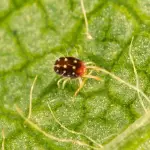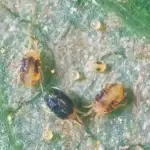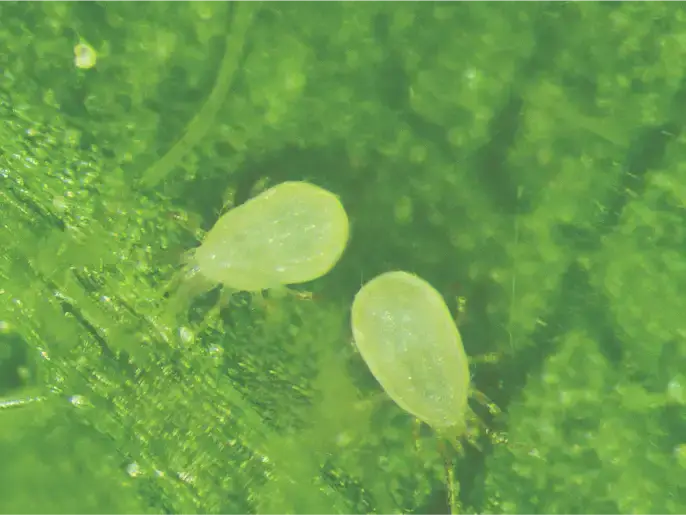Occidentalis
Overview
Typhlodromus occidentalis (Occidentalis) is a predatory mite used to control spider mites, predominantly the Two-Spotted Mite (Tetranychus urticae). It will also feed on European Red Mite and Apple Rust Mite.
Adult Occidentalis are similar in size to Two-Spotted Mite, but has a pear shaped body, are usually opaque white in colour but sometimes take on some of the colour of their most recent prey.
Occidentalis are well suited to tree crops in hot dry climates and commonly used in apples and stone fruit. They are tolerant to organophosphate and carbamate insecticides.
Where conditions are mild (15-25°C) and humid, Phytoseiulus persimilis is often the preferred predator as it breeds faster and is more mobile.
How Occidentalis controls pests among crops
Occidentalis roams the foliage and stems of plants, and consumes its prey on contact.
An adult Occidentalis consumes 5-15 spider mites per day and can complete a generation in 7-8 days at 25°C, whereas spider mites will take nearly 10 days.
The optimum temperature for Occidentalis to develop is 25-32°C, but they can tolerate temperatures above 40°C. They can be used in conjunction with Neoseiulus californicus which also tolerate hot dry conditions and a range of pesticides.
Certain pesticides and fungicides affect this product so contact your local Biological Services Consultant for specific advice.
How you can order Occidentalis
You can order Typhlodromus occidentalis from Biological Services on bean leaves at 5,000 or 10,000 mites/bucket.
Get tailored advice for your commercial crop
To speak with one of our qualified consultants about your current commercial crop challenge or to learn about the benefits of the IPM maintenance and monitoring services we provide, contact us.







